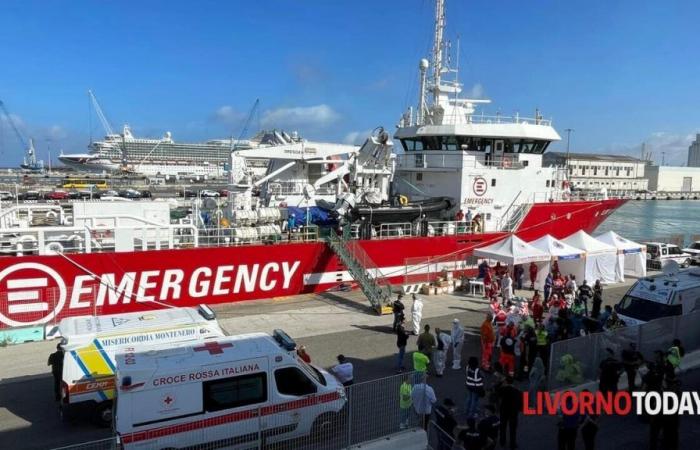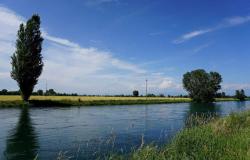They come from Nigeria, Ethiopia, Ghana, Libya, Eritrea, Bangladesh, South Sudan and Sudan. Countries, some of these, afflicted by armed conflicts, political instability and corruption, climate change and persecution of religious affiliation and sexual orientation. On board, stories of poverty, violence, abuse shared by the 47 refugees rescued at sea by Life Support and who arrived this morning, Sunday 30 June, in Livorno, where the disembarkation operations concluded around 11.30.
The rescue took place last Wednesday, June 26, in international waters, in the Libyan SAR zone. The boat in difficulty had departed from the Libyan city of Zwara and was spotted by the Life Support’s command bridge following a report from the Frontex Sparrow 4 aircraft. “After three and a half days of navigation – explains Carlo Maisano, head of mission of the Life Support – we arrived in the port of Livorno where the disembarkation operations have just ended thanks to the full collaboration with the local authorities. Now we are starting to prepare the ship for a new mission in the central Mediterranean where the Life Support will continue to carry out its search and rescue activities to save lives and bring people to a safe country”.
The story of a castaway: “In Europe to create a new life away from conflicts and injustice”
“I arrived in Libya from Nigeria, they treated me like a slave”
Among those rescued were three women and five unaccompanied minors. “I left Lagos, Nigeria, in 2016 because my family could no longer support me,” said a 28-year-old woman. “I first went to Niger and then to Libya, where I spent eight years of my life. I thought the situation in Lagos was difficult, but life in Libya is much worse. Deciding to go there was the worst decision of my life. I worked in the home of a Libyan family for about two years: they treated me like a slave. One day my landlady told me to get in the car and took me to the police station. I was a couple of months behind on my salary, and she didn’t want to pay me so she accused me of stealing from her house and they immediately arrested me: in a place like that, where a black person has no rights, it is impossible to defend yourself from the accusations of a Libyan. Also because I don’t speak Arabic.”
“I was in prison for four years – concludes the story -, I got out about two years ago and started working again but I had already understood for some time that I couldn’t stay in a place like this. So as soon as I earned the money to try to cross the sea, I did it. I hope that there is a future for me in Europe, a future that I couldn’t have in a country like Nigeria or Libya.”
“I fled Bangladesh to help my family and my sick mother”
“I come from Bangladesh, but I couldn’t support my family there and so, being the eldest of my brothers, I had to leave, also because my mother has health problems and we need money to pay her medical expenses” is the story of a 22-year-old. I arrived in Libya in February, I was taken near Benghazi and there for three months I stayed with 25 other people in a house with two rooms and a bathroom. We couldn’t go out, we didn’t even see the sunlight and outside the house there were always two people on guard with AK-47s. Once a day they gave us bread and a little water. Then last Monday they told us we had to leave. Around midnight they made us go out and took us to the beach where there was a dinghy waiting for us. It didn’t seem safe but we had no choice. After a few hours of sailing we were lost in the middle of the sea, until we saw a plane: after two hours you arrived. I want to reach Europe because I hope to be able to find a job that will allow me to send money home and support my mother’s medical care.”






